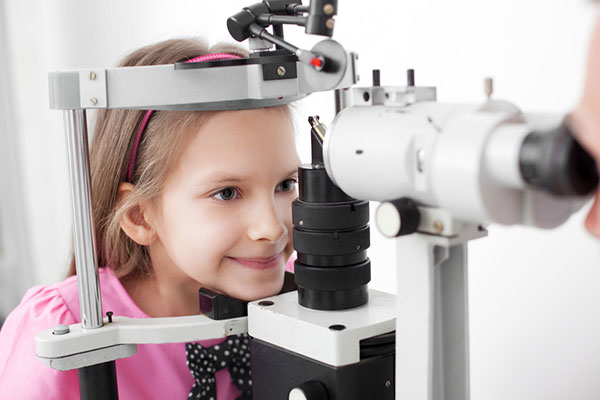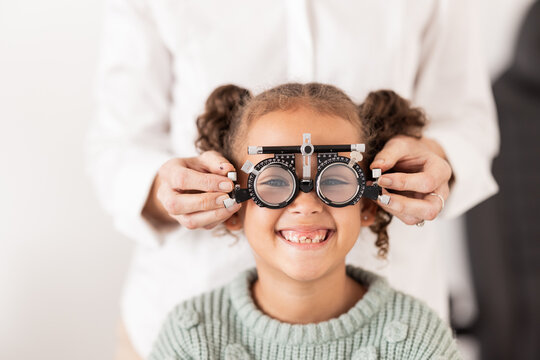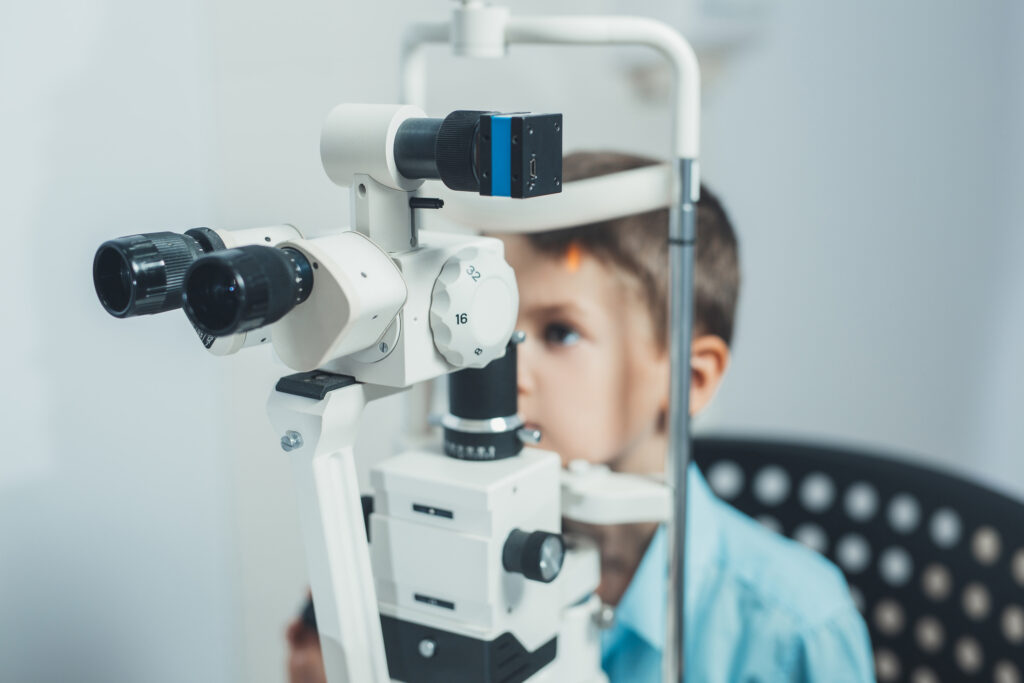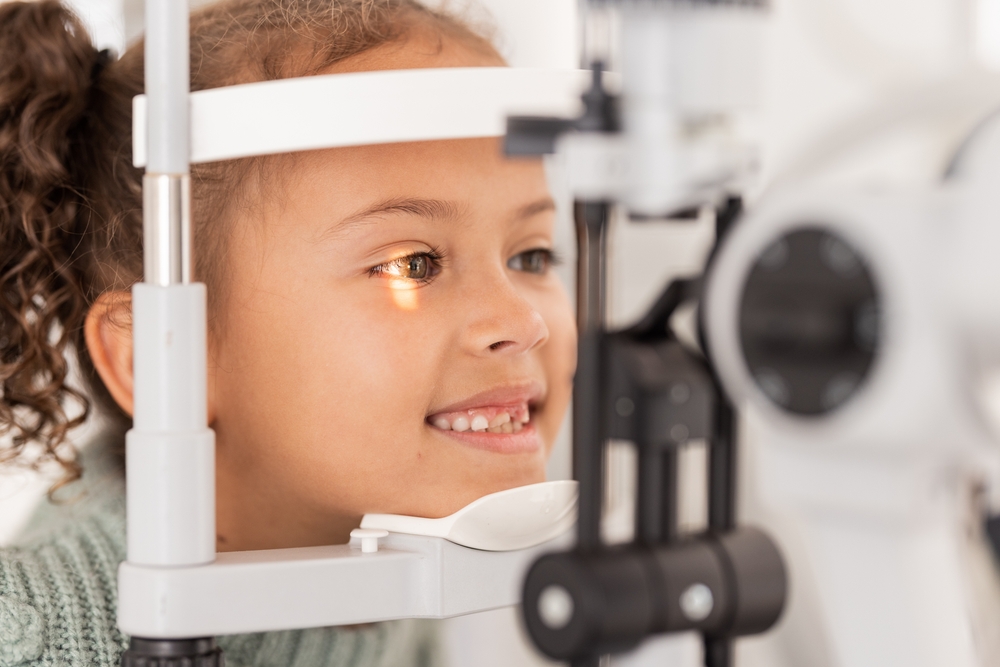Ensure your child’s vision health with a comprehensive pediatric eye examination. Our specialized eye exams for children are designed to detect vision problems, eye diseases, and developmental issues early. Using state-of-the-art technology, we assess your child’s visual acuity, eye alignment, depth perception, and overall eye health. Regular eye exams are crucial for early diagnosis and treatment of conditions like lazy eye (amblyopia), crossed eyes (strabismus), and refractive errors such as nearsightedness, farsightedness, and astigmatism. Our pediatric eye care services focus on providing a comfortable and child-friendly experience while ensuring optimal visual development. Protect your child’s eyesight today with expert care tailored for growing eyes.

Preventive pediatric eye care is essential for ensuring the healthy development of a child’s vision, focusing on early detection, diagnosis, and treatment of eye conditions before they progress. This includes regular comprehensive eye exams, vision screenings, and refractive error correction for conditions like nearsightedness, farsightedness, and astigmatism. Specialized care is provided to address issues such as lazy eye (amblyopia), crossed eyes (strabismus), and other developmental visual challenges. Preventive eye care also emphasizes monitoring eye alignment, tracking visual acuity, and identifying potential eye diseases to promote healthy eyesight and proper visual development. By prioritizing preventive pediatric eye care, parents can protect their child’s vision, enhance academic performance, and support overall well-being for a brighter future.
Pediatric visual processing disorders are conditions that affect how children interpret and respond to visual information. These disorders can lead to difficulties with reading, writing, and coordination. Common signs of visual processing issues include trouble following instructions, difficulty distinguishing shapes or letters, and problems with hand-eye coordination. Early diagnosis and intervention are critical to managing symptoms and improving the child’s ability to process visual stimuli effectively. Visual processing therapy, neuro-optometric rehabilitation, and eye tracking exercises are common treatments for children with these disorders. Identifying and addressing visual processing delays early on can significantly improve a child’s learning abilities, academic performance, and overall visual function. Pediatric specialists use a combination of eye exams, visual-motor integration testing, and other diagnostic tools to assess these disorders and tailor treatment plans specific to the child’s needs.



Strabismus, commonly known as crossed eyes, is a condition where the eyes are not properly aligned and may turn inward, outward, upward, or downward. This misalignment can affect one or both eyes, causing vision problems and difficulty focusing. Early diagnosis and treatment are crucial to prevent long-term vision issues, including amblyopia (lazy eye). Treatment options for strabismus include vision therapy, eyeglasses, prism lenses, and in some cases, surgery to correct the alignment of the eyes. Pediatric ophthalmologists and optometrists specialize in diagnosing and treating strabismus in children and adults. Eye muscle surgery is often used to reposition the eye muscles, improving alignment and coordination. Non-surgical treatments like eye exercises and corrective lenses can help strengthen eye muscles and improve focus. Proper treatment can help restore normal eye function, reduce double vision, and improve depth perception, ensuring optimal visual health for patients.
Pediatric preventive eye care is crucial for ensuring the healthy development of a child’s vision and preventing future eye problems. Early detection of eye conditions such as amblyopia (lazy eye), strabismus (crossed eyes), and refractive errors like nearsightedness, farsightedness, and astigmatism can significantly improve a child’s overall visual health. Regular eye exams starting at an early age help detect these conditions early and ensure timely intervention. Pediatric eye specialists use advanced techniques like visual acuity testing, eye alignment checks, and depth perception assessments to monitor and maintain healthy eyesight in children. Preventive eye care also includes providing advice on protecting eyes from excessive screen time, UV rays, and eye strain, while encouraging good habits for eye health. By investing in preventive pediatric eye care, parents can enhance their child’s academic performance, overall well-being, and quality of life. Early and regular visits to an optometrist or pediatric ophthalmologist are key to safeguarding children’s vision for the future.
